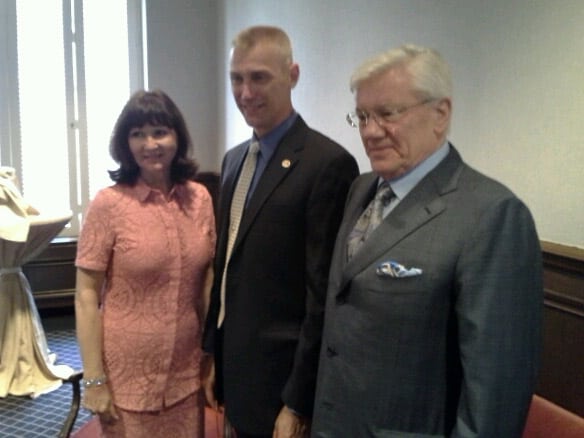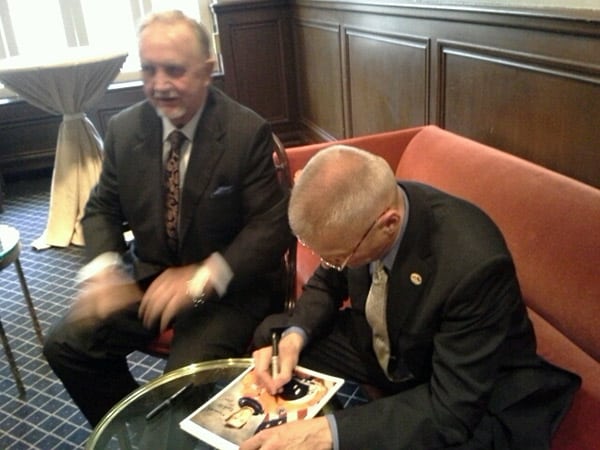
Dr. James Pawelczyk, an American astronaut of the Polish origin, attended Chairman’ Branch of the Polish American Association. The event took place in the Standard Club in Chicago on Sunday, April 27, 2014.

Number of the community leaders and activists attended the event.

Arie and Bozena Zweig were recognized for their contributions to PAA.

Mary Ansalmo with Dr. Pawelczyk
PAA provides many programs for many people in need: women, elderly, immigrants.
Gary Kenzer is the Executive Director of PAA.

Walter Kotaba and Dr. Pawelczyk.
The Board is overseeing services and programs of PAA.
http://www.polish.org/
Photos: Andrzej Mikolajczyk

(Archives- POLISH NEWS) Dr. James Pawelczyk (left), famous American astronaut recieved the Heritage Award from the Polish American Congress.
Aurelia Pucinska received another Award. Dr. Mark Brzezinski received Award for Young Professional.
Chris Kurczaba (right) was the President of Polish American Congress at that time.

Jim Pawelczyk, Ph.D.
Associate Professor of Physiology, Kinesiology and Medicine
Pennsylvania State University
James A. (Jim) Pawelczyk received Bachelor of Arts Degrees in Biology and Psychology from the University of Rochester in 1982, a Masters of Science in Physiology from Penn State University in 1985, and a Ph.D. in Biology (Physiology) from the University of North Texas in 1989. He completed a post-doctoral fellowship at the University of Texas Southwestern Medical Center at Dallas in 1992, then joined the faculty as an Assistant Professor of Cardiology and Bioengineering. In that capacity he served as the Director of the Autonomic and Exercise Physiology Laboratories and a founding member of the Institute for Exercise and Environmental Medicine, a clinical research collaboration between UT Southwestern and Presbyterian Hospital of Dallas. In 1995 he joined the faculty of the Pennsylvania State University where he is now an Associate Professor of Physiology, Kinesiology and Medicine.
Dr. Pawelczyk’s research focuses on the dynamic regulation of blood pressure, and how disuse atrophy affects blood pressure regulation. Problems with moment-to-moment regulation of blood pressure lead to orthostatic intolerance, an inability to maintain adequate blood flow to the brain that affects as many as 500,000 Americans. The condition is routinely observed following spaceflight, which Dr. Pawelczyk has studied as a NASA funded investigator for the past six years. In 1995 he was selected as a Payload Specialist for the Neurolab space shuttle mission, and flew aboard STS-90 on the space shuttle Columbia in April and May of 1998. He logged 16 days and 6.4 million miles in space, circling the earth 256 times and conducting neuroscience experiments that addressed changes in the development of the nervous system, balance, blood pressure regulation, sleep, and control movement during spaceflight.
Dr. Pawelczyk assists the formation of U.S. space life sciences strategy. He has testified before the United States Senate Subcommittee on Science and Space, and is an active member of the National Research Council’s Space Studies Board and the Institute of Medicine’s Committee on Aerospace Medicine and Extreme Environments. Both are part of the National Academies, chartered by Congress to address critical national issues and give advice to the federal government and the public.
